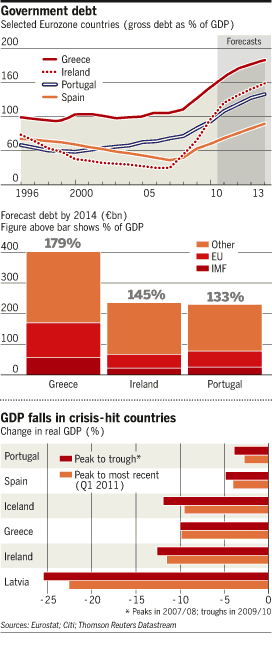The biggest question in any debt crisis is whether a credible path back to solvency can be found. For Greece, this now seems very unlikely. The same is true, to a lesser extent, for Ireland and Portugal. This raises three further questions. First, how big is any required restructuring? Second, who should bear the cost? Finally, is restructuring enough? If the answer to the last question is No, then one has to ask whether the currency union will last in its current form.
On the first of these questions, an analysis by Citigroup provides a negative answer. According to this analysis, by 2014 the ratio of gross debt to gross domestic product will have risen to 180 per cent in Greece, 145 per cent in Ireland and 135 per cent in Portugal. In none of these cases will the debt ratio start moving downwards over this horizon. Spain looks far better, with a debt ratio at about 90 per cent of GDP in 2014, though its path, too, will not have turned down. (See chart.)
